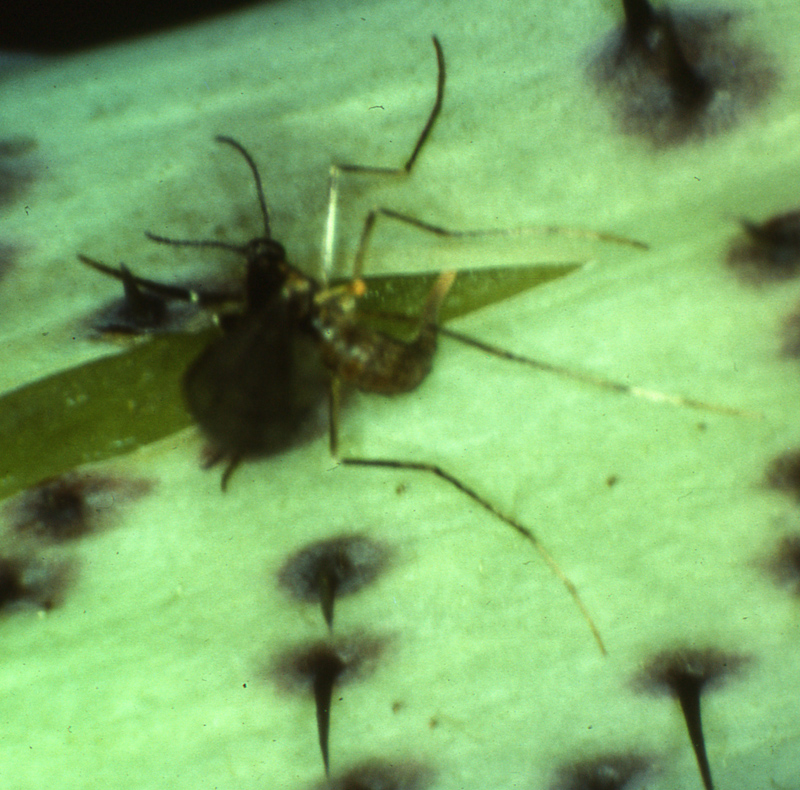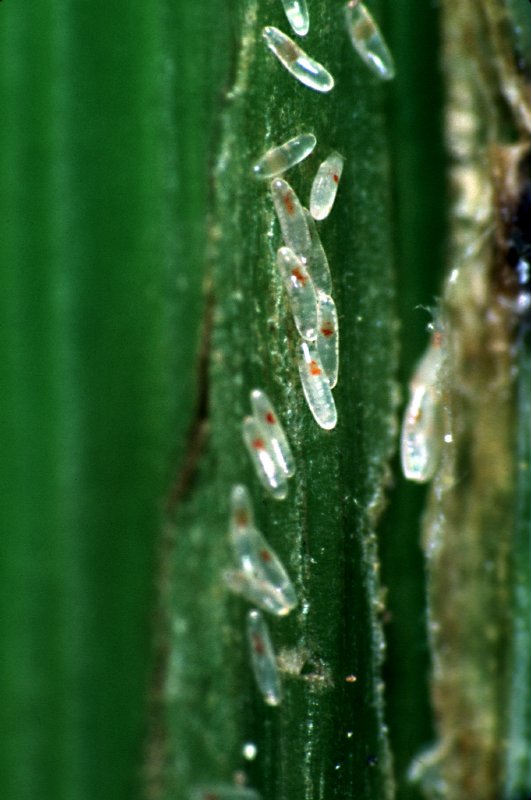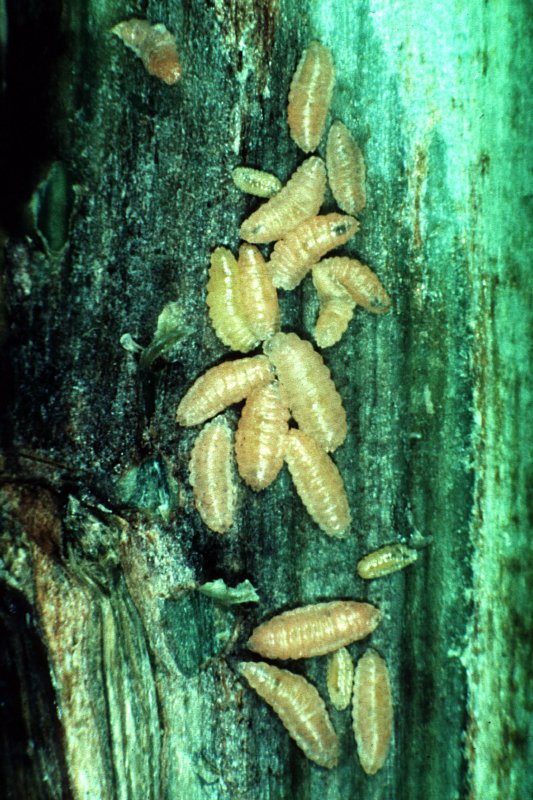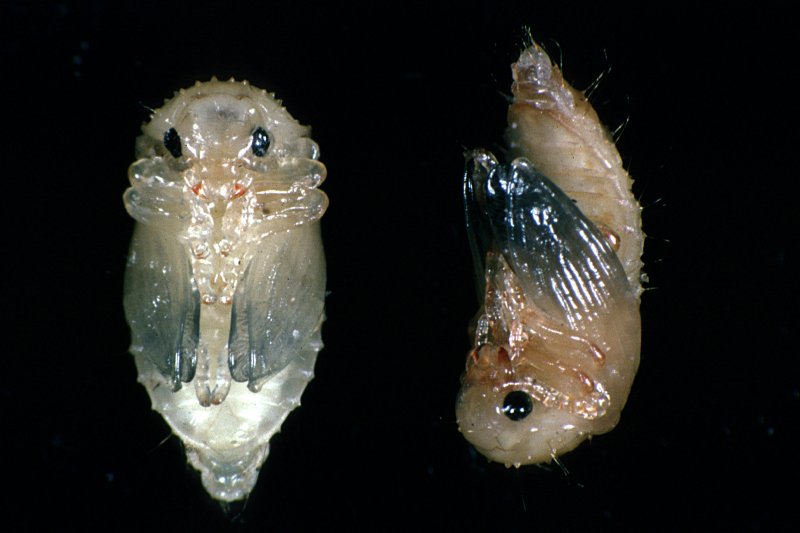Introduction
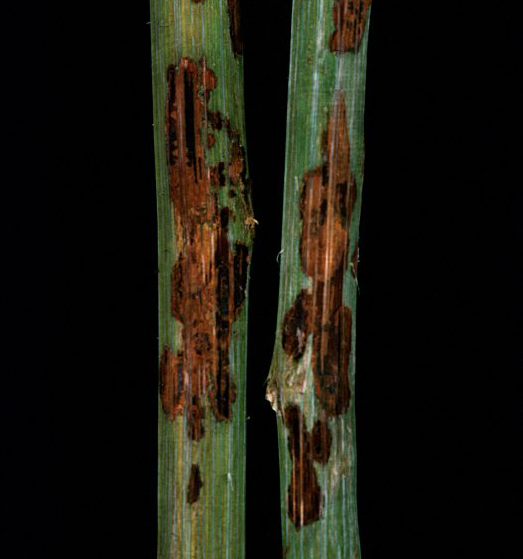 Raspberry cane midge, and the associated fungal disease known as ‘Midge Blight’, can cause significant damage to raspberry plants in the UK. Damage has also been reported from many parts of Europe and northern Asia. The spread of raspberry cane midge is thought to be as cocoons in soil attached to infested planting material.
Raspberry cane midge, and the associated fungal disease known as ‘Midge Blight’, can cause significant damage to raspberry plants in the UK. Damage has also been reported from many parts of Europe and northern Asia. The spread of raspberry cane midge is thought to be as cocoons in soil attached to infested planting material.
The image to the left shows 'patch' lesions on an overwintered cane. If the midge attack is severe, the canes are girdled by the fungus colonising the midge feeding sites and transport of water and nutrients is stopped resulting cane death.
Control
The most effective control of ‘Midge Blight’ (caused a wide range of weakly pathogenic fungi and/or the ‘Cane Blight’ fungus (Leptosphaeria coniothyrium)) is by controlling the eggs and larvae laid by over-wintered adults. By reducing the levels of these progeny this will prevent survival of enough midges to cause feeding damage and subsequent cane death that will lead to loss of yield in the following year. Currently this is done by targeted spraying with an insecticide to the base of the primocanes in spring. Effective control relies on predicting the accurate date of emergence of the adult midges from the soil and targeting the sprays when the larvae begin to hatch. The Institute and ADAS developed a prediction system which is currently in use for open-field raspberry production in the UK. However, with the advent of different forms of protected and semi-protected production coupled with the restrictions in pesticide application, The Institute is now working with colleagues at EMR and NRI to develop advanced monitoring and trapping systems based on insect pheromones and possibly natural plant attractants in a defra funded HortLINK project (HL0175).
Life Cycle
References
- Barrie IA, Johnson CA & Gordon SC (2000) An appraisal of the UK raspberry cane midge prediction system and its application under differing European climates. Third European Conference on Applied Climatology (ECAC2000), Pisa, Italy, 16-20 October 2000. pp.3.
- Gordon SC, Woodford JAT, Barrie IA, Grassi A, Zini M, Tuovinen, T, Lindqvist I, Höhn H, Schmid K, Breniaux D & Brazier C (2002) Development of a pan-European monitoring system to predict emergence of first-generation raspberry cane midge in raspberry. Acta Horticulturae, No. 587, 303-307.

